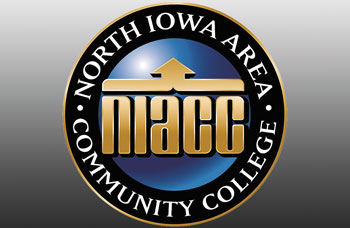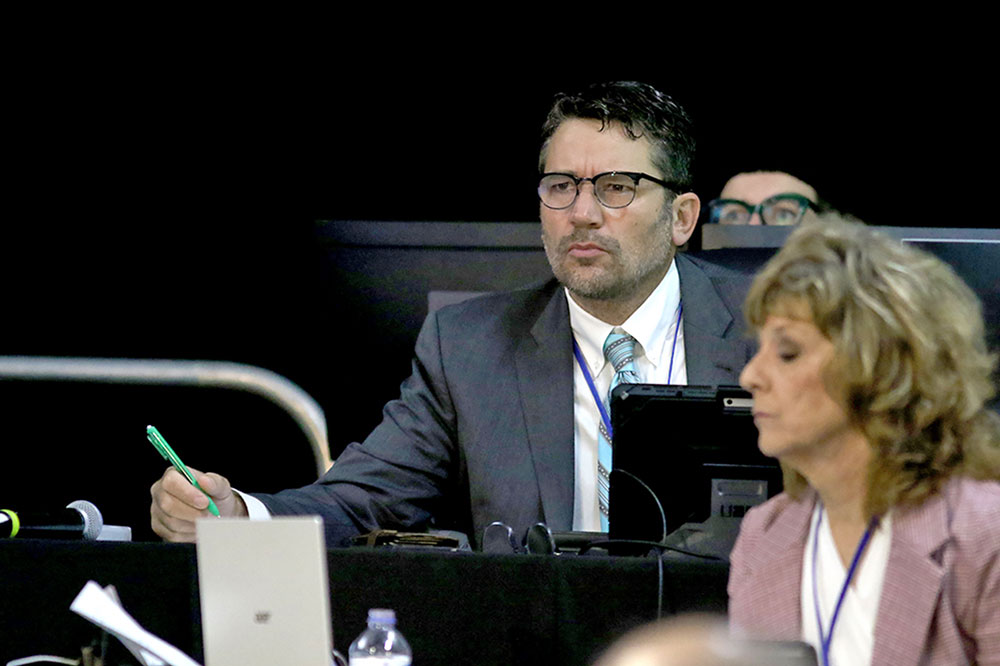Sen. Ernst talks ag, economics with students at Charles City High School stop







By Bob Steenson, bsteenson@charlescitypress.com
Iowa’s junior U.S. senator visited Charles City High School Wednesday afternoon, spending 45 minutes chatting with FFA and ag class students about agricultural and other issues.
Sen. Joni Ernst started off with a little of her background, telling students she grew up on a farm in Montgomery County in southwest Iowa, then attended Iowa State University, enrolling in the ROTC program.
After graduating, she began a 23-year career of military service in the Army Reserves and the Iowa Army National Guard that included a tour in the Iraq War. She retired as a lieutenant colonel in 2015 after being elected to the U.S. Senate.
But she spent most of her time talking with the students and answering their questions, as well as questions from a few of the teachers. She left the session saying she was impressed by the quality and depth of the questions some of the students asked.
Asked what was the biggest change she had seen in Washington, D.C., since she had been there, Ernst, a Republican, said it was the divisiveness, polarization and lack of dialogue between the political parties.
“But I don’t want that to be discouraging, because we still have a lot of really great relationships. I think the media does not do a very good job at talking about the things that we do well together. … On some of the hot-button topics, yeah, we disagree. But there’s a lot of projects that we really do agree on,” she said.
A couple of questions had to do with the costs of college — likely on the minds of the many juniors and seniors in the audience. Ernst was asked about efforts by some to forgive student loan debt, or to make community colleges or even four-year colleges free.
“There’s a lot of proposals out there about free stuff,” Ernst said. “Free, free, free. … If you’re being promised free college … you’re all going to be paying for that someday. … You’re going to get a job and you’re going to pay taxes, and those taxes are going to pay for ‘free’ college.”
She said people don’t work as hard for things they get for free, and there are programs such as Pell Grants to help students whose families can’t afford college.
“If we need to, let’s bolster the Pell Grant Program and make sure the dollars are going to the students who actually need it,” she said.
Ernst also said conservatives would rather offer credits for employers to help pay for their employees’ student loans, to incentivize it on the back end.
Asked about efforts to enact a federal $15 an hour minimum wage, Ernst said it is fine if individual states want to do that, but she is against it at the federal level, and it would hurt Iowa.
She said a study had found that Iowa would be hit the hardest in the area of child care, because at $15 an hour child care costs would “shoot through the roof.”
“What happens when you can’t afford to take your child to child care? You can’t work,” she said. “They figured you would lose more jobs here in Iowa because of that $15 minimum wage in that child care space.
“It sounds great, $15 an hour, but once you do that you have to think about all of the other things that happen. … It’s going to cost employers more to employ you. So in return they’re going to start raising rates, so that means y’all are going to pay more for your housing, more for your food, more for your clothing. It really does impact everybody when businesses have to raise their rates.”
Asked about current proposals to increase the inheritance tax and how that might affect students who hope some day to inherit their parent’s farms, Ernst quickly changed the term, calling it the “death tax.”
“We’re pushing back against it. … We want to abolish the death tax. We’ve already paid taxes, so why pay them again when someone passes away?” she asked. “I don’t agree with the death tax and I don’t agree with jacking up taxes on our farmers.”
Asked about the future of red meat, including the impact of raising livestock on climate, Ernst said she hopes the future is strong.
“I love meat. I grew up on a hog farm, … I love a good pork chop. I love a good steak. OK? But there are groups that are trying to limit our intake of meat, and we know that meat can be a healthy part of any diet,” she said.
“We do have members of the ag committee that want to limit animal agriculture. That is really hard on people in the Midwest that are farmers and ranchers. We raise livestock,” she said. “But then there are climate activists who think our cattle production, our hog production, are actually damaging the environment, so they want to scale that back.”
Ernst said she had just put out a bill that would prohibit federal agencies from eliminating animal products on their menus.
“We have actually seen this in the past where our very own U.S. Department of Agriculture was promoting “meatless Mondays” — at the De-part-ment of Ag-ri-culture,” she said, emphasising the words.
“We’re doing everything we can to promote beef, to promote pork, chicken … it’s a good part of our economy and we need to support it,” she said.
Regarding the sustainability of agriculture, Ernst said that conservation is extremely important and ways need to be found to continue making soil healthier and water and air cleaner.
She said she has co-sponsored the Growing Climate Solutions Act, which would help farmers participate in carbon credit markets and gain a revenue stream from practicing conservation techniques and sequestering carbon.
A student asked about the future of ethanol, noting that 50% of the corn crop is going to produce ethanol, which is then raising the price of corn for chicken farmers and cattle farmers.
Ernst said, “This is a tough one,” because it does benefit some farmers and hurt others.
She said the emphasis by the current administration on moving to electric vehicles will change the demand for biofuels.
“What I am concerned about is the heavy investment that has been made in biodiesel and ethanol facilities here across the Midwest, and Iowa is the No. 1 producer of corn ethanol,” Ernst said. “As the government is pushing toward electric vehicles the internal combustion engine at some point goes away. It’s still a ways away, but what we’re being told is you just need to find somewhere else to sell your ethanol and biodiesel.
“The U.S. will need to look for new markets for ethanol, or for other uses of corn including new products,” she said.
Ernst said both she and Sen. Charles Grassley serve on the Senate agriculture committee. It’s unusual to have both of a state’s senators on the same committee, she said, but that’s how important agriculture is to Iowa.








Social Share